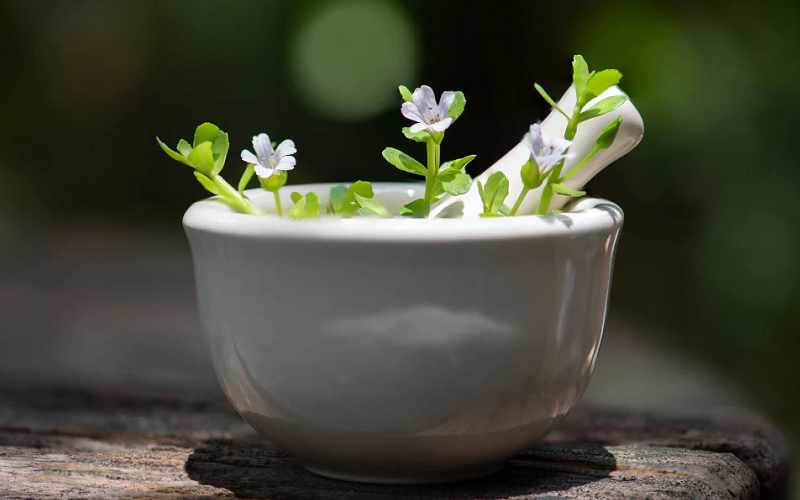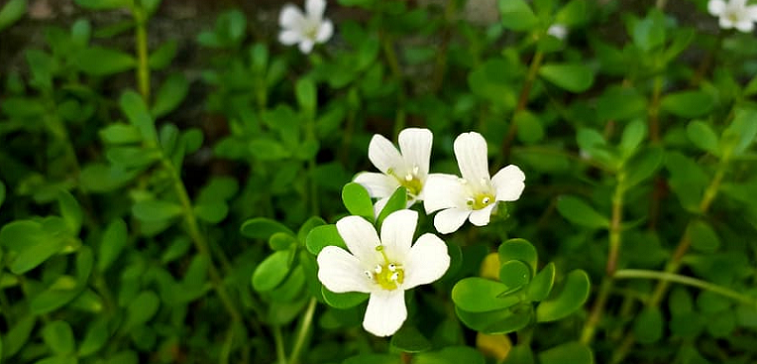
High blood pressure is a prevalent disorder in which the persistent force of the blood against a person’s artery walls is raised enough that it can eventually create health issues, including heart attack, hardening of the arteries (atherosclerosis), or stroke.
The World Health Organization believes that 600 million people with high blood pressure are at risk of cardiac failure, heart attack and stroke. A few of the main sources of high blood pressure are unhealthy diet and stress.
Treatment methods for high blood pressure involve medications such as calcium channel blockers and renin inhibitors. These kinds of pharmaceutical drugs are in many cases beneficial, but they are fairly commonly associated with by undesirable side effects. This has led many people to go with more natural, non-prescription, solutions — including supplements derived from brahmi.
What Is Brahmi?
Brahmi belongs to the family Scrophulariaceae. Brahmi is a small, succulent, glabrous (smooth), creeping or prostrate (branches growing above ground), perennial (grows back on a yearly basis) herb. Brahmi is also referred to as Bacopa monnieri or Herpestis monniera, and in India — the place the plant is native to — this plant is known as Jalanimba or brahmi. The word brahmi is taken from the word Brahma, which refers to the mythic God of creation in Hindu mythology.
In Ayurveda, the historic medical methodology of India, brahmi was a primary medicinal plant for nearly 2000 years. Ayurvedic practitioners have used brahmi frequently for its a wide range of medicinal characteristics to address various health conditions including insomnia, cognitive issues, high blood sugar, and skin conditions. Although it might be most known for its nootropic (brain boosting) properties, it also has the potential to lower blood pressure.
How Brahmi Works to Lower Blood Pressure
Blood pressure is figured both by the volume of blood your heart pumps and the degree of resistance to blood traveling within the arteries. The more blood the heart pumps and the narrower your arteries, the higher one’s blood pressure. One’s blood pressure is made up of two numbers.
A person’s systolic pressure rates the pressure in the arteries when your heart beats. Your diastolic pressure measures the pressure in your arteries in between beats. Bacopa has been shown to have the potential to bring down both systolic and diastolic pressures.

Brahmi Manages Stress and Anxiety
Your body produces an outpouring of hormones when you are in a traumatic predicament. These hormones temporarily raise your blood pressure by causing your heart to beat quicker and your blood vessels to constrict. Responding to stress in unhealthful ways can certainly boost your likelihood of heart attacks, strokes, and high blood pressure.
Bacopa is be useful in managing anxiety due to its anxiolytic (anxiety-reducing) property. It may lessen the signs of stress and anxiety and mental fatigue and at the same time enhancing memory span. Bacopa may also prevent neuroinflammation (inflammatory reaction of the nervous tissue) which is responsible for anxiety
In Ayurveda psychological science, there exist three factors of a person’s mind: One characteristic is inertia, another is agitation and the third characteristic is collectively balance, clarity and calmness. Brahmi is known in the practice of Ayurveda to cause that last quality of balance and calmness in your mind. A couple of three month studies support this traditional wisdom by affirming that consuming 350 mg of brahmi on a daily basis significantly lowered anxiety levels.
Bacopa is considered an adaptogenic herb, meaning it raises your body’s ability to withstand stress and tension on your body and mind. In the field of herbal medicine an adaptogen is a natural substance known to help a person’s body adapt to stress and to apply a normalizing effect on the body’s processes. Modern research has found that this herb can improve your mood by reducing cortisol levels. Cortisol is the hormone responsible for creating stress, so bring down cortisol levels will help decrease the level of stress you experience.
Brahmi Strengthens and Dilates Blood Vessels
In Ayurvedic medicine this herb is believed to possess numerous blood-health abilities, including:
- Provides the easy passing of blood throughout the blood vessels for proper blood circulation, which in turn supports a healthier heart, kidneys, and lungs
- Supports the toxin removal from blood vessels to achieve their routine function
- Ensures relaxation of the blood vessels for smooth blood circulation
- Promotes heart wellness by helping invigorate the heart and preserving healthy and balanced blood flow
In one animal study, Bacopa decreased systolic and diastolic blood pressure levels. Bacopa achieved this by releasing nitric oxide, which helps in the dilation of blood vessels, causing better blood flow and a reduced blood pressure. Brahmi induces the release of nitric oxide, which relaxes blood vessels and lessens blood pressure. The extract eliminated blood clots in a cell study, which might help diminish high blood clotting that will obstruct the arteries.
Bacopa also works on the circulatory system, helping to cleanse the blood, strengthen blood vessels bringing about enhanced blood flow within the body reducing blood pressure.
Taking Bacopa Supplements
Bacopa monnieri can be bought online as well as from health food stores. It’s available in a few varieties, including capsules, tablets, and powders.
Brahmi Dosages
As per qualified Ayurvedic physicians, it is considered healthy to use up to 4 grams of Bacopa powder daily together with meals. A conventional retail available practice is to take oral capsules of 250 mg each of Bacopa powder. Doses are usually taken after meals, however it is reasonable to consume Brahmi between meals. Bacopa supplements have been given in clinical trials at doses from 150 mg up to 2,000 mg daily, with some studies carrying on for as long as six months.
Side Effects of Bacopa Side Effects
Bacopa is usually well-tolerated by the majority of people. But, because as you’ve read here Bacopa can bring down blood pressure, a person having low blood pressure and a reduced heartbeat could experience some lightheadedness or dizziness after taking Bacopa. For this reason it is advised that these people keep away from using Bacopa. The most widely reported side effects of brahmi supplements involve nausea or indigestion.
There isn’t enough information concerning brahmi’s safe use during breastfeeding and pregnancy, so it’s best to avoid taking this herb or to consult with your medical professional if you wish to take Bacopa during pregnancy or while breastfeeding.







